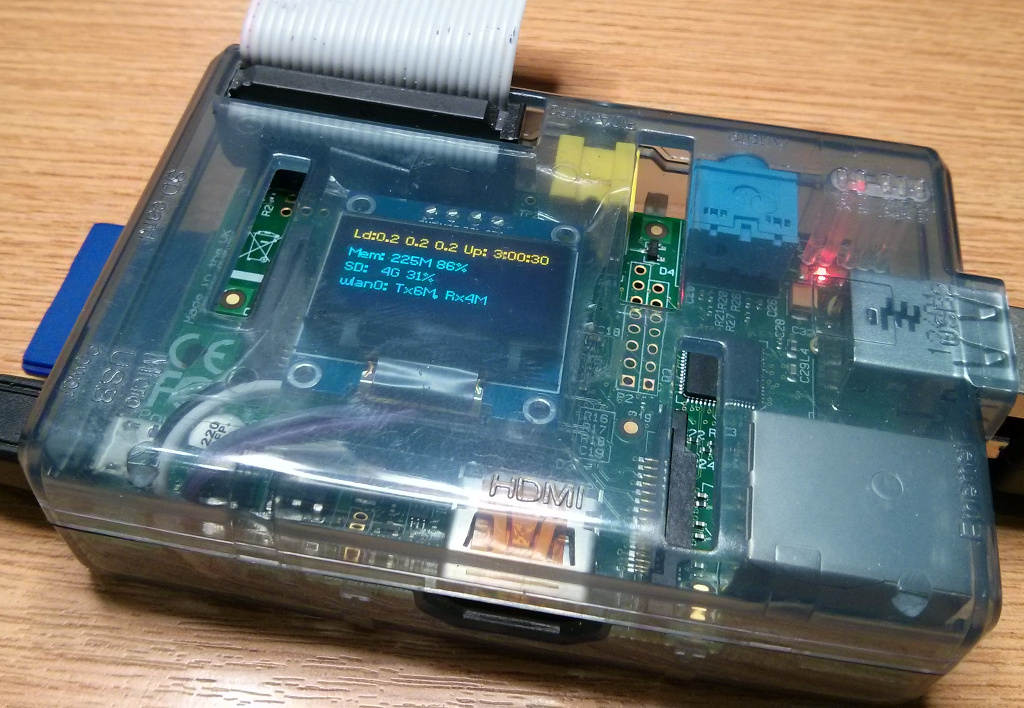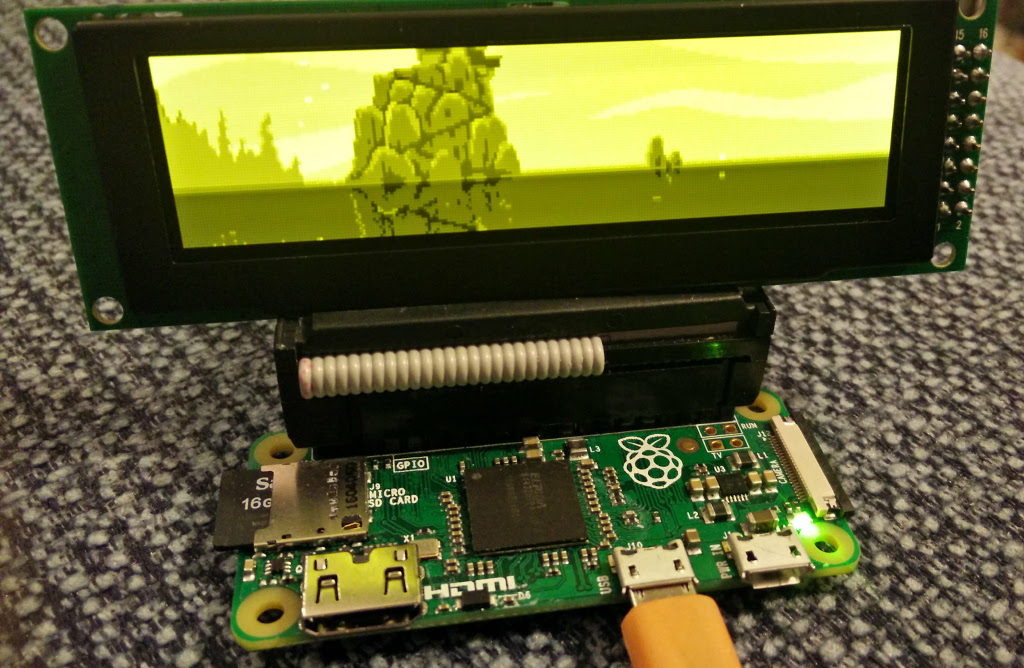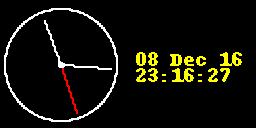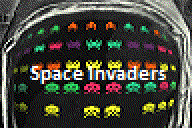Introduction¶
Interfacing OLED matrix displays with the SSD1306, SSD1309, SSD1322, SSD1325, SSD1327, SSD1331, SSD1351 or SH1106 driver in Python 2 or 3 using I2C/SPI on the Raspberry Pi and other linux-based single-board computers: the library provides a Pillow-compatible drawing canvas, and other functionality to support:
- scrolling/panning capability,
- terminal-style printing,
- state management,
- color/greyscale (where supported),
- dithering to monochrome
The SSD1306 display pictured below is 128 x 64 pixels, and the board is tiny, and will fit neatly inside the RPi case.


See also
Further technical information for the specific implemented devices can be found in the following datasheets:
Benchmarks for tested devices can be found in the wiki.
As well as display drivers for various physical OLED devices there are emulators that run in real-time (with pygame) and others that can take screenshots, or assemble animated GIFs, as per the examples below (source code for these is available in the luma.examples git repository:


